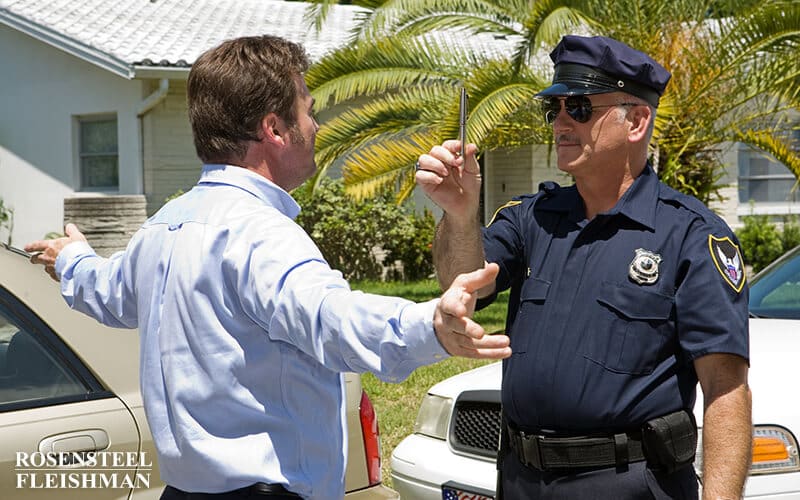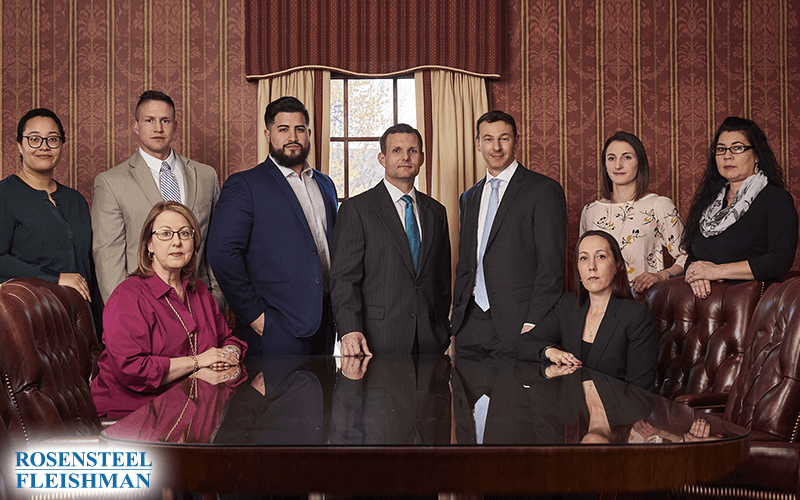While drunk driving accidents have been on the decline in the past few years, drunk driving is still a major problem in the United States and a leading cause of car accidents. The most recent statistics released by the National Highway Traffic Safety Administration show that approximately 28 people die in car accidents every day […]

Charlotte DWI Checkpoints
There are many ways for a prosecution for Driving While Impaired (DWI) to be initiated. In North Carolina, especially in Charlotte, North Carolina, one of the most common reasons an individual is a part of a DWI arrest is that he or she was stopped at a DWI checkpoint.
The Supreme Court of the United States and the Supreme Court of North Carolina have both closely examined checkpoints over the years and found the concept of a checkpoint to be Constitutional. The courts have reasoned that even though law enforcement is stopping a great number of people who are doing nothing wrong, the value of deterring drunk driving outweighs the imposition on the liberty of the motoring public.
While the concept of a dwi checkpoint is Constitutional, there are limitations on the type, scope and purpose that are very important. Often a prepared and knowledgeable DWI DUI attorney can successfully fight a DWI prosecution based on statutory or Constitutional violations that the officers themselves may not even be aware of.
At Rosensteel Fleishman, our experienced DWI attorney has fought and won many DWIs based upon those very statutory and Constitutional violations. Not every case has a violation, but if you don’t have a DWI attorney who knows what to look for and the specific questions to ask, you may miss out on the defense that could win your case.
Our DWI attorney will sit down with you during your initial consultation and go over all the elements of your case. DWI is a statutory violation and is one of the most complicated statutes in North Carolina. Defensible issues include but are not limited to, probable cause, improper arrest, improper holding, chain of custody, etc. It is the State’s burden to satisfy all the elements of the statute. While there are numerous lawyers who handle DWI cases in Charlotte very few lawyers consistently defend cases through trial and appeal. Failing to spot a defensible issue could be the deference between a not guilty or guilty charge – or worse pleading guilty to a winnable case.
§ 20-16.3A. Checking stations and roadblocks.
(a) A law-enforcement agency may conduct checking stations to determine compliance with the provisions of this Chapter. If the agency is conducting a checking station for the purposes of determining compliance with this Chapter, it must:
(1) Repealed by Session Laws 2006-253, s. 4, effective December 1, 2006, and applicable to offenses committed on or after that date.
(2) Designate in advance the pattern both for stopping vehicles and for requesting drivers that are stopped to produce drivers license, registration, or insurance information.
(2a) Operate under a written policy that provides guidelines for the pattern, which need not be in writing. The policy may be either the agency’s own policy, or if the agency does not have a written policy, it may be the policy of another law enforcement agency, and may include contingency provisions for altering either pattern if actual traffic conditions are different from those anticipated, but no individual officer may be given discretion as to which vehicle is stopped or, of the vehicles stopped, which driver is requested to produce drivers license, registration, or insurance information. If officers of a law enforcement agency are operating under another agency’s policy, it must be stated in writing.
(3) Advise the public that an authorized checking station is being operated by having, at a minimum, one law enforcement vehicle with its blue light in operation during the conducting of the checking station.
(a1) A pattern designated by a law enforcement agency pursuant to subsection (a) of this section shall not be based on a particular vehicle type, except that the pattern may designate any type of commercial motor vehicle as defined in G.S. 20-4.01(3d). The provisions of this subsection shall apply to this Chapter only and are not to be construed to restrict any other type of checkpoint or roadblock which is lawful and meets the requirements of subsection (c) of this section.
(b) An officer who determines there is a reasonable suspicion that an occupant has violated a provision of this Chapter, or any other provision of law, may detain the driver to further investigate in accordance with law. The operator of any vehicle stopped at a checking station established under this subsection may be requested to submit to an alcohol screening test under G.S. 20-16.3 if during the course of the stop the officer determines the driver had previously consumed alcohol or has an open container of alcoholic beverage in the vehicle. The officer so requesting shall consider the results of any alcohol screening test or the driver’s refusal in determining if there is reasonable suspicion to investigate further.
(c) Law enforcement agencies may conduct any type of checking station or roadblock as long as it is established and operated in accordance with the provisions of the United States Constitution and the Constitution of North Carolina.
(d) The placement of checkpoints should be random or statistically indicated, and agencies shall avoid placing checkpoints repeatedly in the same location or proximity. This subsection shall not be grounds for a motion to suppress or a defense to any offense arising out of the operation of a checking station.
Our Charlotte DWI attorney is in court every day. If you have been cited with a DWI DUI please contact us to schedule an appointment to discuss your case.
Additional DWI Articles
I. You Will Need a Lawyer Just because someone has had drinks, does notautomatically mean that the law should rest on their shoulders and result in an automatic conviction. That is partly why, under North Carolina law, a series of safeguards have been adopted. These safeguards often rely on, and are helpfully followed, by experienced […]
I. Working While Impaired It is a sobering crisis. We cannot say for sure just exactly how many people drink during work hours, and then drive a vehicle within a short period of time after leaving the restaurant or bar. Often, it requires help from a car accident attorney to see if this drinking is […]
I. PC for DWI An experienced Charlotte criminal trial attorney is aware of the unique place that DWI charges can play in North Carolina courts. There’s no doubt that the public generally supports crackdowns on DWI offenses in North Carolina. But here’s the news flash: as important as DWI is, to maintaining public safety, it’s […]

